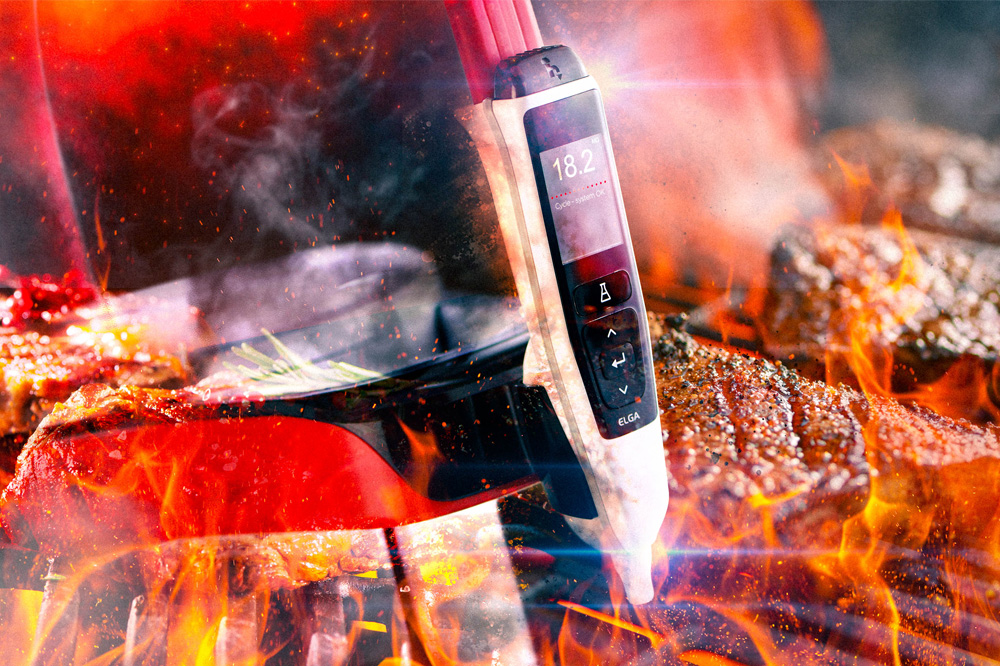Is chargrilled meat safe to eat?
30 Mayo 2022
 Researchers investigate the influence of meat doneness and fat content on the bioaccessibility of polycyclic aromatic hydrocarbons in grilled meats.
Researchers investigate the influence of meat doneness and fat content on the bioaccessibility of polycyclic aromatic hydrocarbons in grilled meats.
Polycyclic aromatic hydrocarbons (PAHs) are chemicals that form when meat is cooked at high temperatures – when fat and juices drip onto flames while roasting, frying or grilling. These substances can also form during other food preparation processes, such as drying and smoking.
Exposure to dietary PAHs is gaining concern due to the risk these chemicals may pose to human health. In laboratory experiments, PAHs have been found to cause changes in DNA that may increase the risk of cancer. As a result, the International Agency for Research on Cancer (IARC) has classified some of these chemicals as known, possible or probably carcinogenic to humans.
Assessing the amount of a substance released from food into the gastrointestinal tract during the digestion process – or its bioaccessibility - is an important tool for measuring its potential health risk. But currently, there is a lack of information available on the bioaccessibility of PAHs in grilled meat.
Measuring bioaccessibility
In a new study, published in the International Journal of Environmental Research and Public Health, scientists evaluated the bioaccessibility of PAHs in grilled chicken and beef with different degrees of doneness (cooking time) in different parts of the gastrointestinal tract.1 They also studied the relationship between the fat contents of grilled meats and the bioaccessibility of these substances.
The researchers measured 15 PAHs in grilled chicken and beef samples using high-performance liquid chromatography (HPLC) – before and after digestion using saliva, gastric, intestinal and bile juices.
The team found 30.73 ng/g total PAHs in beef and 70.93 ng/g total PAHs in chicken before digestion. The bioaccessibility of the PAHs varied between grilled beef and chicken, with those in grilled beef exhibiting relatively higher bioaccessibility. The highest bioaccessibility of these substances was after stomach digestion, followed by intestinal and then salivary digestion. Additionally, the bioaccessibility of PAHs increased with the increase in the degree of doneness – and they were positively correlated with the fat contents of grilled meat.
The researchers used purified water generated from an ELGA PURELAB® laboratory water purification system for their experiments, minimising the risk of adding contaminants that may affect their results.
Potential long-term risks
Eating grilled, barbecued and smoked meat contributes a substantial proportion of the total dietary intake of PAHs since these foods are gaining in popularity. The researchers estimated the daily dietary intake (DI) of PAHs through the consumption of grilled beef and chicken – finding this was also affected by the degree of meat doneness, which could pose a cancer risk through the long-term consumption of grilled meats.
Overall, these findings help to reveal the influence of meat doneness and fat contents on the bioaccessibility and bioaccumulation of PAHs. These findings should be employed in the health risk assessment of human exposure to these chemicals from the consumption of grilled meats at different degrees of doneness.
Why choose ELGA LabWater
ELGA LabWater has been a trusted name in pure and ultrapure water since 1937. We believe in giving you choice in how you use our water purification solutions, supported by excellent service and support.
Reference:
- Hamidi EN, et al. Bioaccessibility of Polycyclic Aromatic Hydrocarbons (PAHs) in Grilled Meat: The Effects of Meat Doneness and Fat Content. Int J Environ Res Public Health 2022;19(2):736 https://doi.org/10.3390/ijerph19020736
